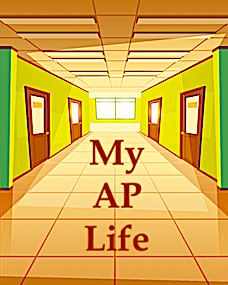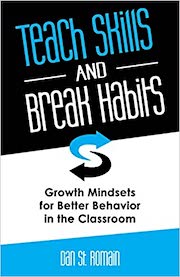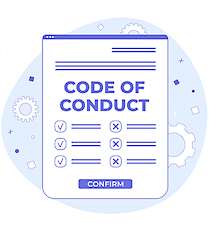Approaching Discipline with a Teaching Mindset

To teachers, discipline may be synonymous with class management and setting up rules and consequences.
To students, discipline may mean being sent to the office to receive a punishment for an action when the teacher is tired of dealing with certain behaviors.
And to parents…well, each parent will probably have a different viewpoint on discipline based on how they were treated when they were in school.
As for me, discipline’s meaning has changed in each role that I have held in education…first as a parent, then as a teacher, and now as an assistant principal.
Throughout the three years that I have been in administration, I have tried to keep in mind three things as I handle student discipline: (1) use it as a teachable moment, (2) make it fair, and (3) love them anyway.
Use Discipline as a Teachable Moment
At the beginning of this year, I attended a webinar hosted by Dan St. Romain. His presentation was about changing our perspective when it comes to discipline. I was so moved by his presentation, that I immediately bought two of his books.

I truly believe this. Many of our students are not even aware of why certain behaviors are unacceptable, and when we assign consequences to those behaviors without taking the opportunity to teach students the Why, we begin to erode relationships that we have worked so hard to cultivate. Assuming that all students have the same concept of right and wrong as we do will only lead to frustration.
Although I am by no means a discipline guru, I have always tried to use discipline as a teaching opportunity. As an administrator, whenever a student comes to my office on a discipline referral, the first thing I do is ask them if they know why they have been called to my office. This helps set the tone for the conversation we will have about the referral and any consequences that may be enforced because of their actions.
During our conversation I allow students to tell me their version of what happened, and I try to ask probing questions to get down to the root of what caused the student to act in the way that was reported to me. Finally, I ask the student if they understand why their actions were unacceptable and why they will be receiving consequences.
My ultimate goal is to help students learn from the actions so that the unacceptable behavior will not be repeated. Guiding students in this way is not always easy – and the best path is not always cut and dried. Discipline shouldn’t be. Teaching isn’t.
When we approach discipline with a teaching mindset, we help build relationships with students that will allow them to develop into the best version of themselves.
Make It Fair
I have always strived to live my life by the Golden Rule. And as an administrator, I have tried to see the discipline problem from the perspective of the individual child as well as from my own adult place. Dan St. Romain calls it the “Behavioral Golden Rule: Discipline students the way you would want to be disciplined.”
When we keep this golden rule in mind, it becomes easier to make sure that the punishment doesn’t just fit the crime, but that it also fits the student. Just as we should differentiate learning for students, we need to be differentiating discipline.

However, some of the consequences are vague or written in a way that the punishment is left to the discretion of the principal or principal designee.
These discretionary situations are the times that we as administrators can really take a look at what the behavior was, talk with the student, and devise a consequence that is appropriate to the student and the situation. And just like grading and assessment, discipline that is fair is not always equal.
Love Them Anyway
This saying has been attributed to Mother Teresa, has been touted as the meaning behind the Luke 23:34 bible verse, and was originally written by Dr. Kent M. Keith in 1968 as part of a pamphlet for student leaders. It now appears on t-shirts, paintings, and posters.

We must remember that it is not the student that is challenging, but their behavior. All of our students want to be loved and accepted. Most of the negative behaviors that we as administrators deal with on a daily basis are not a result of premeditated thought, but are the impulses of children seeking attention.
When we come from a place of love as we administer discipline, we communicate to our students that although we may be disappointed in them at the moment, we recognize their lack of skill in managing their behavior and are working to help them learn and grow from their mistake.
Lessons Learned
Over the past three years, I have learned a lot about student discipline. As an assistant principal, it is one of the main functions of my job. And because it is such a large component of what I do every day, I have really tried to research the best approaches to discipline that both address the challenging behaviors and at the same time help students learn from their mistakes.
Each situation is unique, just as each student is unique. When we look at each incident individually, focus on the whole student, and discipline from a place of love, we cultivate those positive relationships with students that not only help them accept accountability for their actions, but also help them understand the need for discipline and their potential to do better in the future.






























